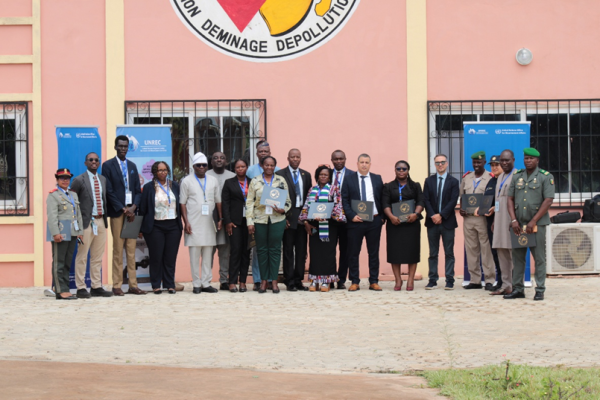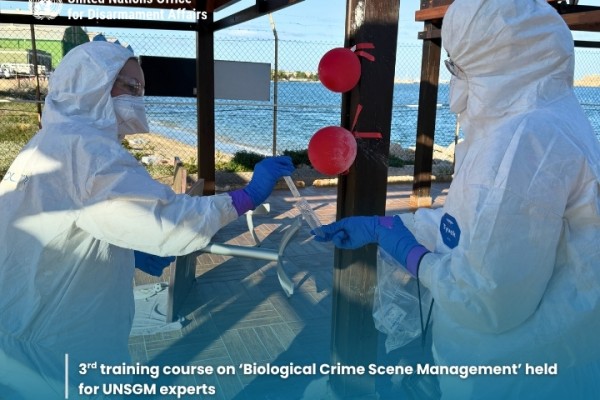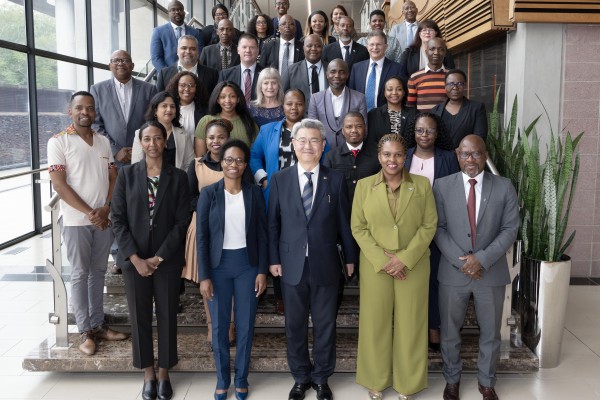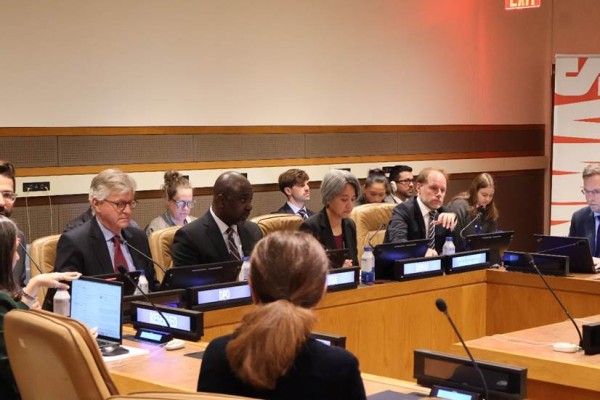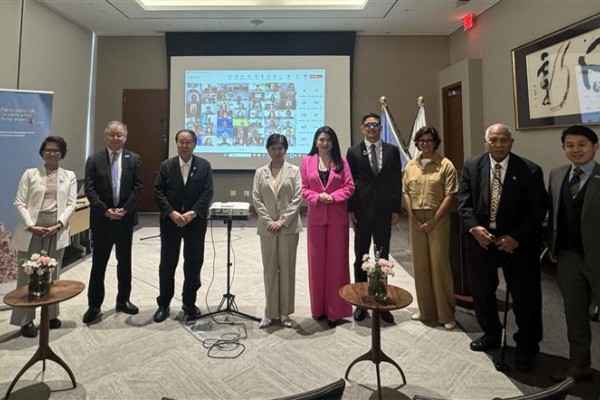9 октября Австрия, Ассоциация по контролю над вооружениями и компания DeepCuts провели параллельное мероприятие в кулуарах Первого комитета Генеральной Ассамблеи ООН, чтобы обсудить продвижение целей Статьи VI Договора о нераспространении ядерного оружия (ДНЯО), особенно в свете предполагаемого истечения срока действия нового Договора СНВ в феврале 2026 года.
Австрия вместе с другими государствами недавно распространила совместное заявление, призывающее "срочно начать переговоры о соглашении-преемнике" нового договора СНВ, официально называемого Договором о мерах по дальнейшему сокращению и ограничению стратегических наступательных вооружений.
Это мероприятие состоялось через несколько недель после того, как 22 сентября Президент Владимир Путин предложил, что Российская Федерация будет соблюдать центральные ограничения нового договора СНВ в течение одного года, если Соединенные Штаты "будут действовать в аналогичном духе". Хотя Президент Дональд Трамп позже заявил, что предложение Президента Путина звучит как хорошая идея, Соединенные Штаты не дали никакого официального ответа на момент написания этой статьи. Истечение срока действия Договора ознаменует собой первый случай за более чем 50 лет, когда между странами не действуют двусторонние соглашения по контролю над вооружениями.
Г-н Александр Кментт, директор Департамента разоружения, контроля над вооружениями и нераспространения МИД Австрии, заявил, что истечение срока действия нового Договора СНВ должно волновать всех, и подчеркнул, что необходимо вернуться к укреплению доверия и снижению ядерных рисков. Он подчеркнул, что необходимо срочно сохранить достигнутое и договориться о дальнейшем ограничении ядерных арсеналов. Он подчеркнул, что такое развитие событий имеет решающее значение для предстоящей Конференции по рассмотрению действия ДНЯО, и приветствовал положительные знаки со стороны Российской Федерации и Соединенных Штатов в этом отношении. Он подчеркнул возможность для международного сообщества поддержать эту инициативу, напомнив о совместном заявлении Австрии, призывающем к началу переговоров.
Г-жа Шизука Курамицу (помощник исследователя, Ассоциация по контролю над вооружениями) обратила внимание на отсутствие официальных переговоров по новому соглашению, несмотря на недавние положительные сигналы. Она сказала, что цель данного мероприятия - внести вклад в обсуждение нового договора СНВ, представив различные региональные перспективы.


Г-н Дэрил Кимбалл (исполнительный директор Ассоциации по контролю над вооружениями) отметил, что времени осталось мало, и приветствовал недавние заявления Президента Трампа и Президента Путина. Он предостерег, что обе стороны могут удвоить размер своих арсеналов без создания рамочной программы, подчеркнув, что существующих арсеналов достаточно для сдерживания. Он подчеркнул важность сохранения числа участников нового договора СНВ по крайней мере в течение года, чтобы создать лучшую атмосферу для переговоров по официальному соглашению о преемнике, и призвал другие государства поддержать эту инициативу.
Павел Подвиг (старший научный сотрудник, Программа по оружию массового уничтожения, Институт ООН по исследованию проблем разоружения) назвал недавнюю инициативу Президента Путина позитивным шагом, который следует воспринимать всерьез. Опираясь на американо-российскую (и советскую) историю контроля над вооружениями, он подчеркнул, что ценность этого процесса заключается не столько в обсуждении цифр, сколько в возможности ощутимого взаимодействия в очень непростом контексте. Он также отметил, что Россия открыта к обсуждению вопроса о проверке и привела технические средства для решения некоторых существующих проблем.
Джулия Бергхофер (старший научный сотрудник по вопросам политики, European Leadership Network) подчеркнула, что отсутствие соглашения в феврале 2026 года станет "переломным моментом", заявив, что российское предложение необходимо оценить тщательно и критически. Она подчеркнула отсутствие единой европейской точки зрения по этому вопросу, отметив при этом как преимущества такого продления - в частности, для атмосферы переговоров на Конференции по рассмотрению действия ДНЯО, - так и его ограничения. Она призвала европейские государства принять участие в дискуссиях и добиваться возобновления обмена данными.
Выступавшие подчеркнули, что истечение срока действия нового договора СНВ в феврале 2026 года должно побудить Соединенные Штаты, Российскую Федерацию и другие государства поддержать возобновление переговоров. Они подчеркнули, что российская инициатива - это шаг в правильном направлении, но его следует тщательно оценить. Отсутствие соглашения после февраля 2026 года создаст значительный риск новой гонки вооружений и будет иметь негативные последствия для Конференции 2026 года по рассмотрению действия ДНЯО. И наоборот, соглашение-преемник будет обладать большой нормативной силой, в том числе в контексте обсуждения Статьи VI ДНЯО. Было высказано предположение, что европейские государства могут сыграть позитивную роль, взаимодействуя с Соединенными Штатами по этому вопросу, в то время как другие государства могут поддержать инициативу, выступив с заявлениями на многосторонних форумах.
Во время сессии вопросов и ответов делегаты задавали вопросы на такие темы, как заинтересованность России в продлении договора, возможный ответ Соединенных Штатов, последствия для ДНЯО, взаимодействие с Китаем и Европой, роль государств, не обладающих ядерным оружием, и актуальность нового договора СНВ для развития новейших технологий.
Дополнительная информация и ресурсы
Сяодон Лян, Россия предлагает продлить новый договор СНВ на один год, Ассоциация контроля над вооружениями, октябрь 2025 г., https://www.armscontrol.org/act/2025-10/news/russia-proposes-one-year-new-start-extension
DeepCuts, После нового Договора СНВ, сентябрь 2025 г., https://deepcuts.org/publications/statements-briefings/after-the-new-start-treaty
